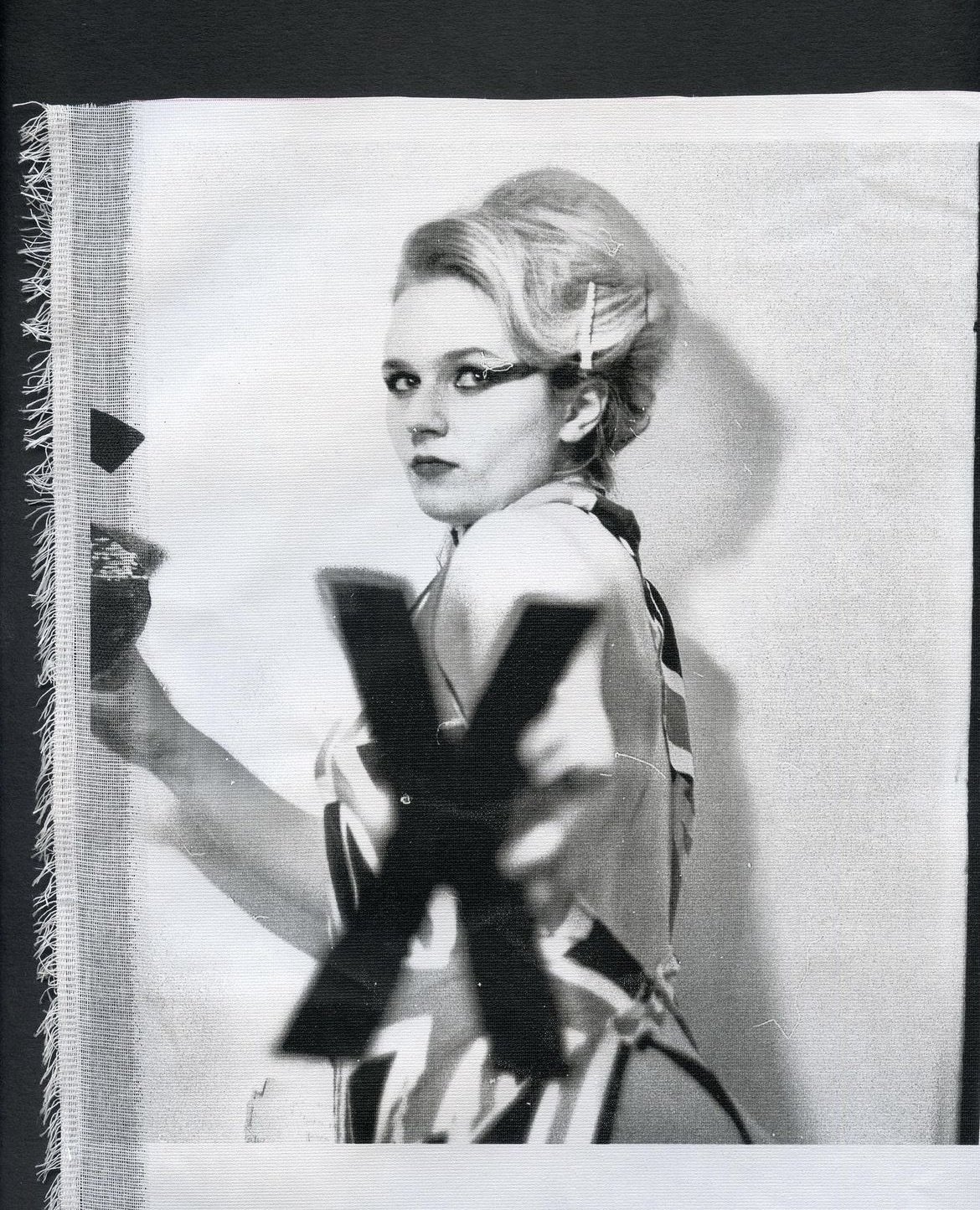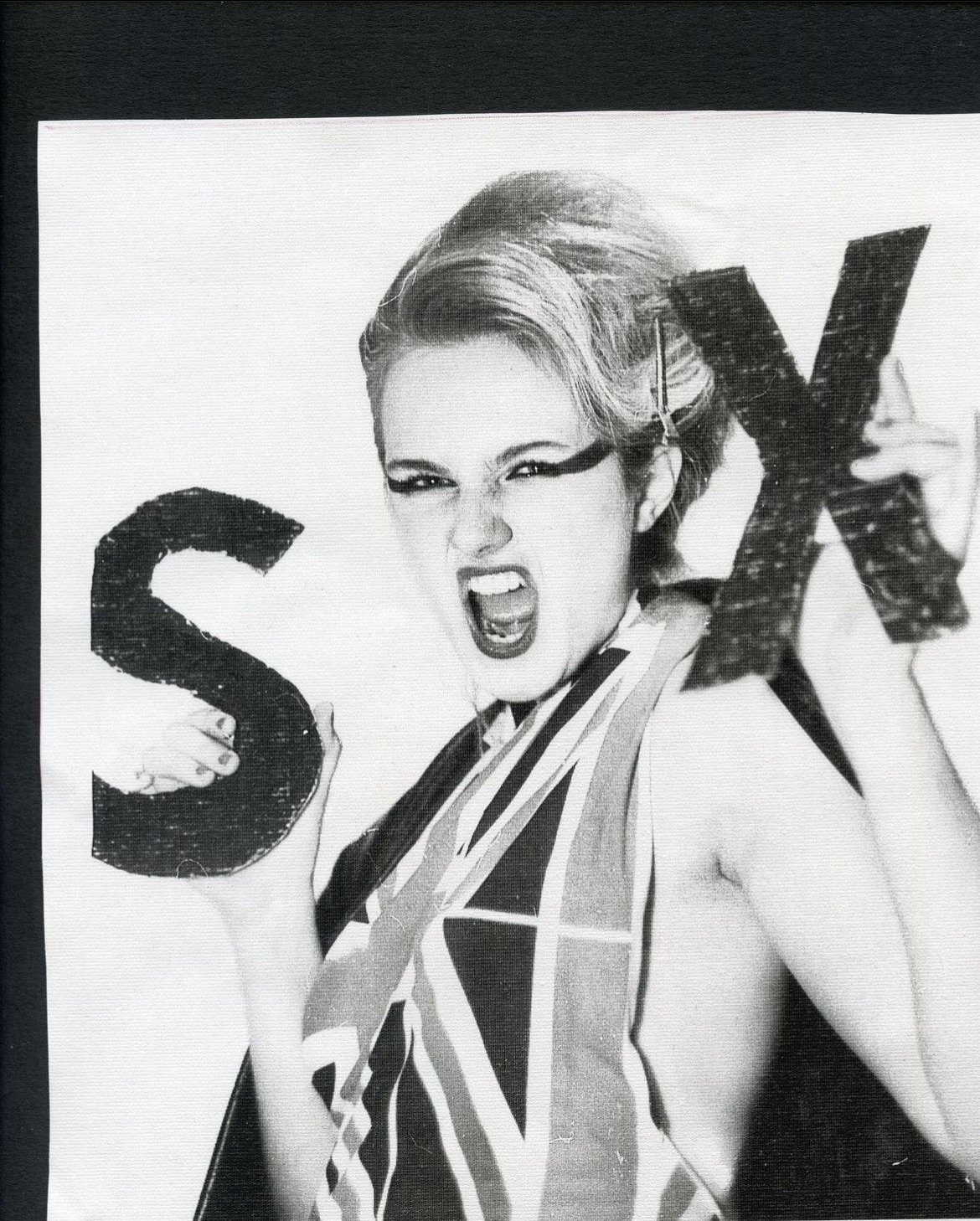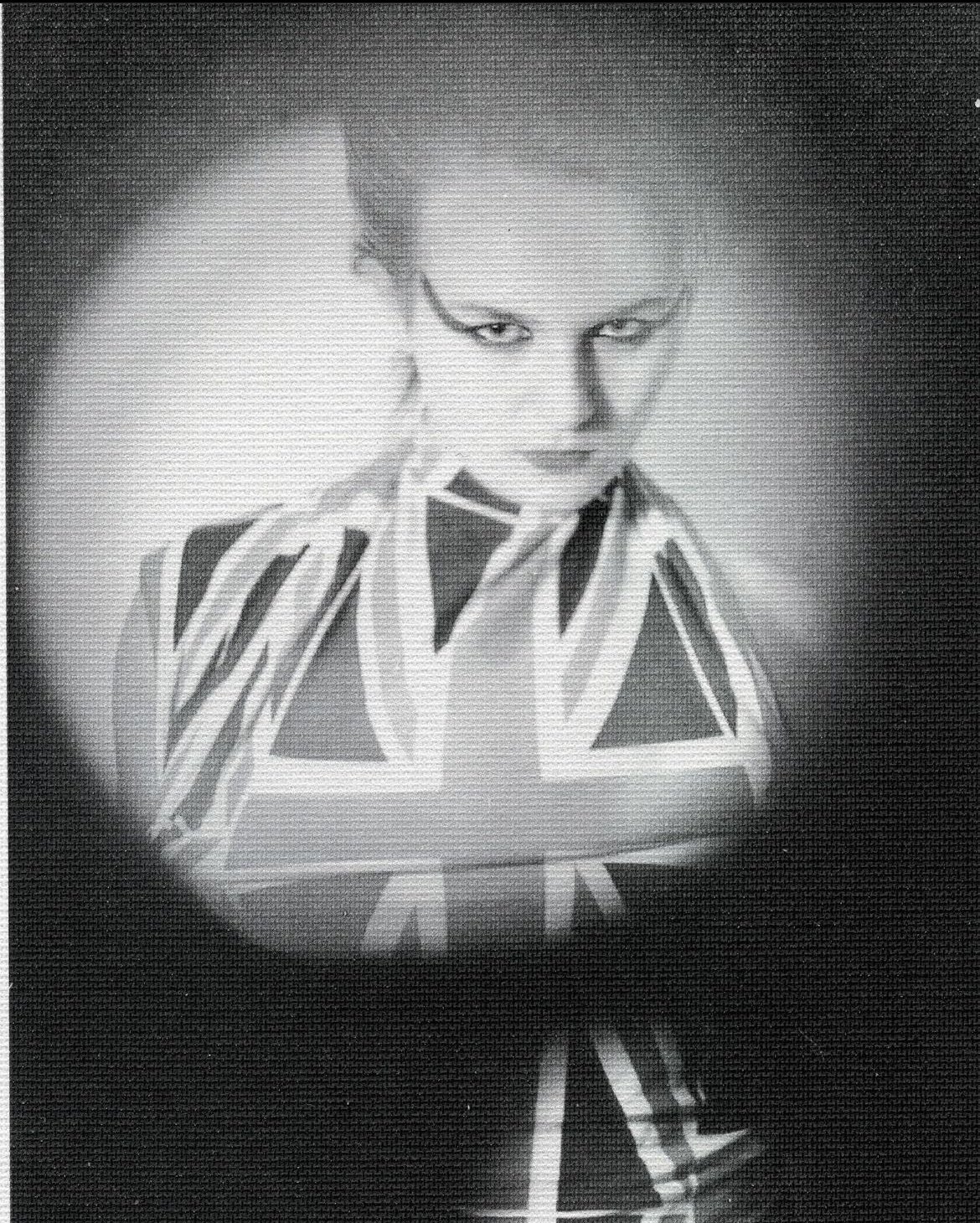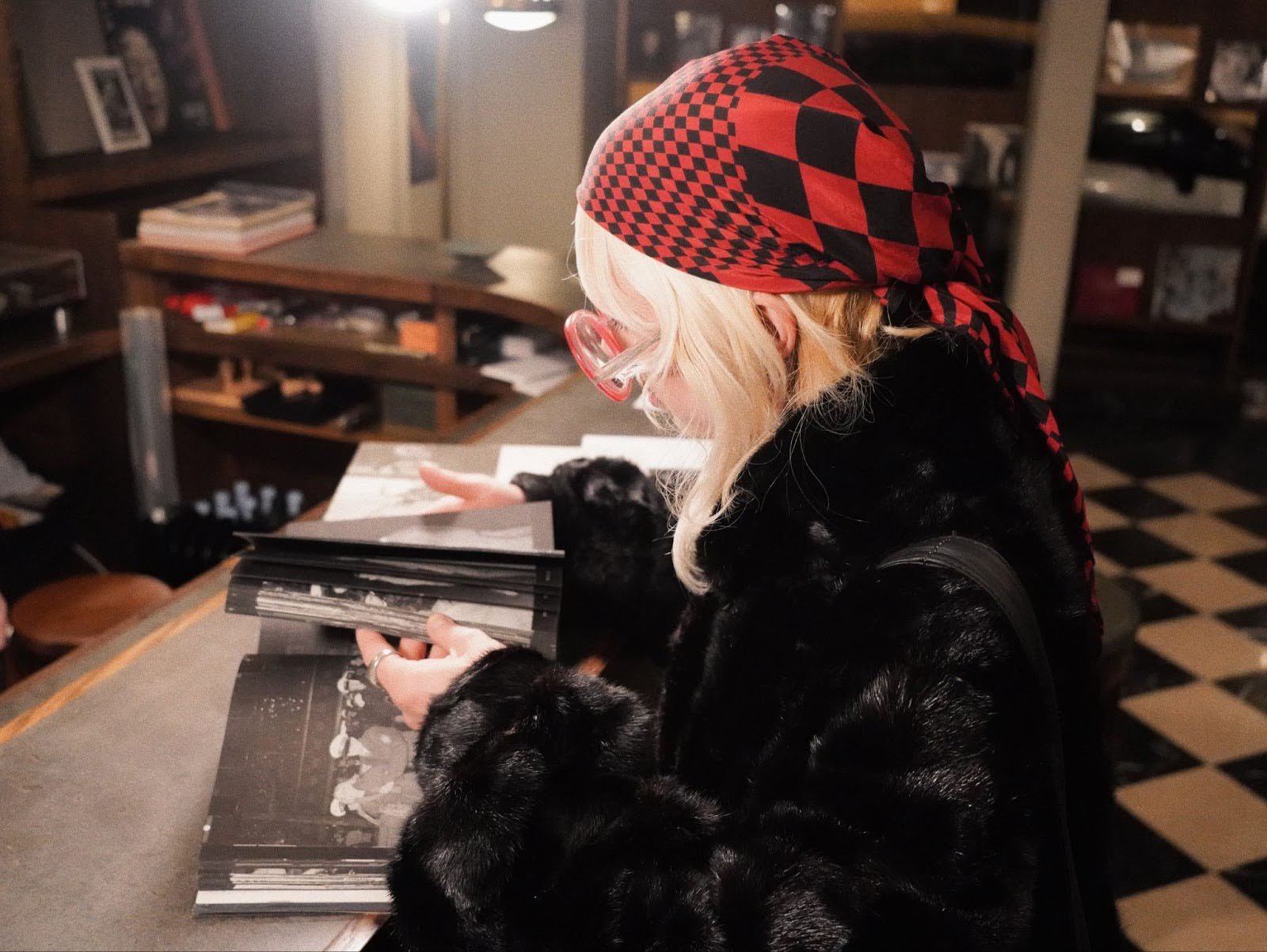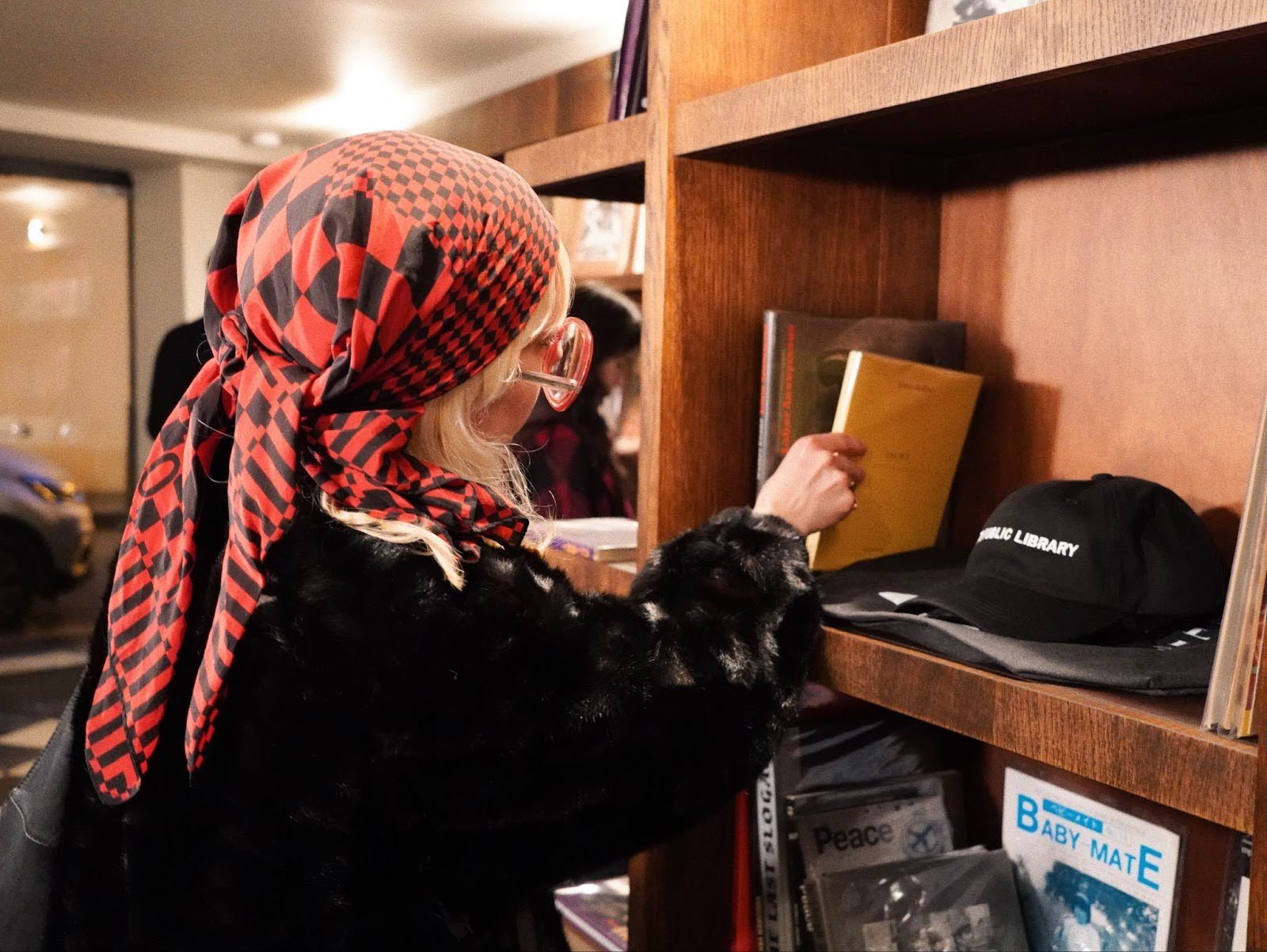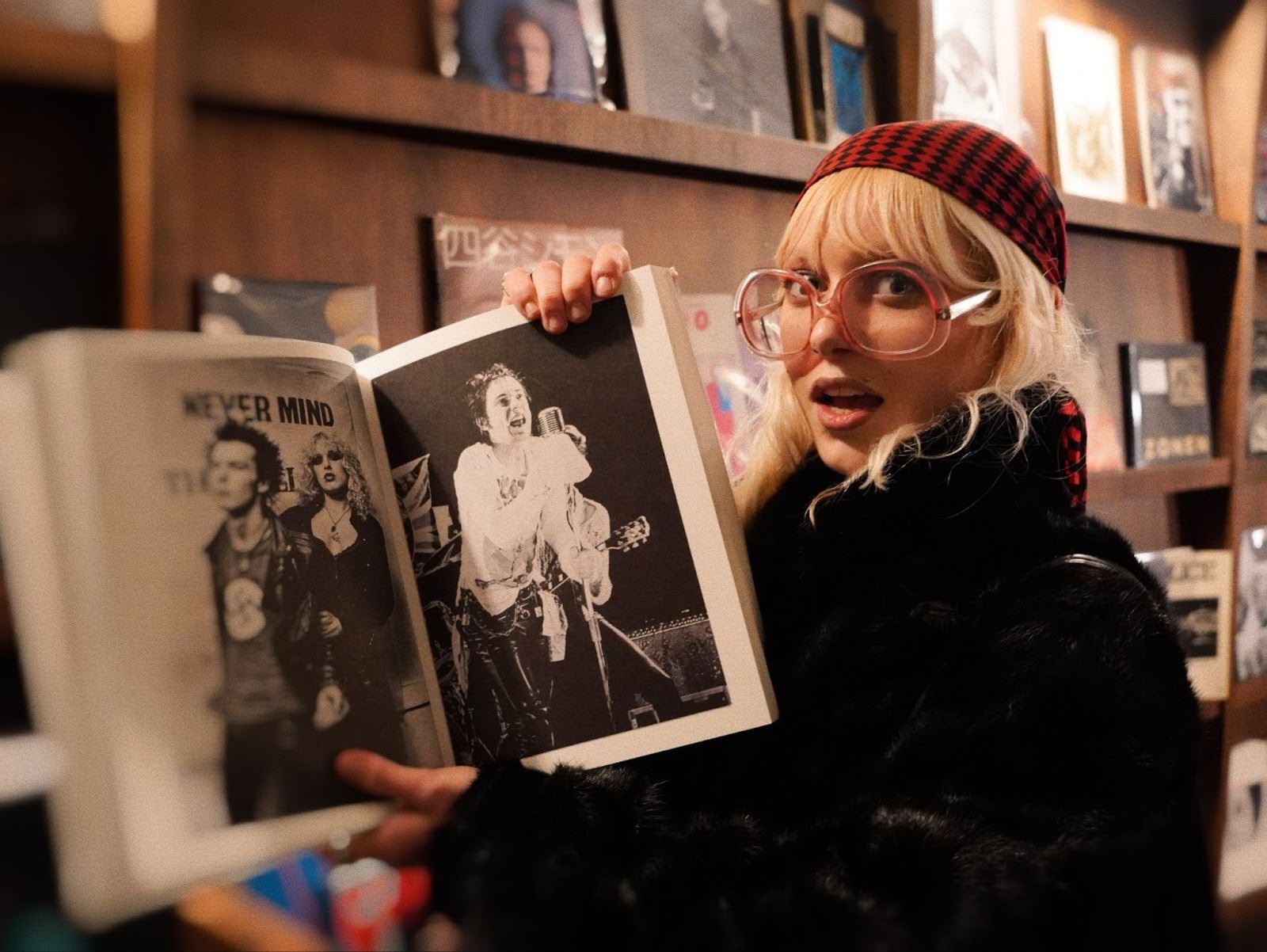Interview with Polina, AKA Sextravaganz
Interview conducted by Zara nneka
Photos by Zara nneka
Zara: Would you introduce yourself to our readers?
Polina: My name is Polina, but I call myself Sextravaganz. I’m 21 and originally from Berlin. I moved to Paris to study a bachelor’s in photography, and I’m excited where this journey will take me.
Zara: When did you first get into photography?
Polina: I think I was 14 or 15. I got a camera, passed down from my mom—it was an Olympus point and shoot, an Olympus MJU III. I still have and use this camera. At the time I was just photographing Berlin and my surroundings. I never saw it as something professional, I always thought of it as a hobby. But I realized after a couple of years that I couldn't go anywhere without taking my camera with me. I realized it was an integral part of my life and that I could take it further.
Zara: I’ve noticed you prefer analog processes in photography more so than digital, if you even use digital at all. What attracts you to using analog photography over digital photography?
Polina: I never shoot digital, actually. I stay true to the traditional [means] of photography because I think…I wouldn’t say the quality is better because you can make incredible quality pictures with digital cameras—but I think it’s a matter of the materiality of it—the prints, the emulsion, the layering, the photo depth…I think that when you shoot film it becomes a souvenir, an object that people normally wouldn’t consider a photograph nowadays because there’s such a huge stream of photographs overflowing our lives. With negatives, they still behold this singular element to them, it’s one of a kind, and I just genuinely really love anything antique, vintage, retro—so I think analog photography really winds into that.
Zara: Your work is very striking—it catches your attention immediately, it’s visually stimulating and it can also be very macabre. Recently you made a series inspired by the circus, but it’s been a motif in your work for some time now. What attracts you to these oddities?
Polina: I love anything that is a subculture, anything that is a small niche—people or creatures—that aren’t normally integrated into society or are seen as “weird”. I like to put them on a pedestal, make them the stars of my frames and show how unique they are. I want to make people pay more attention to them. So I’m really inspired by cinema and I think that’s where my surreal attitude to photography comes from. I want every photo to look cinematic. I want people to wonder, “How did this happen?”, “Where did this object come from?”, “Why has this photo been taken?” I’m always looking to do something super subverting.
Zara: Your work is also very much inspired by music—one of my favorite pictures of yours is of Rosa [Von Lieven] as punk icon Jordan Mooney. Punk is no doubt an influence in your work, it’s almost as if your images have a soundtrack of their own. How do you approach, or what is your approach to music as a subject when making it a subject in your photography?
Polina: I approach music through my documentary photography. Since I started photographing more professionally—for example, at raves in London—I think it was this huge aspect of techno in my life where music was playing in my ears every Friday and Saturday night. Through music I got to speak to people, it united me and my subjects. From there it moved onto punk, rock and roll, post-punk, new wave…I think documentary photography is in a league of its own in my photos.
you look like you just saw a clown (@sextravaganz)
Zara: You mentioned that cinema is also an influence in your work—would you ever make the jump from still photography to moving image/filmmaking?
Polina: I don’t think so. I love that a photo is a singular object that has people questioning what is happening inside the frame, behind the scenes, that has them wondering what is happening outside of a cropped image. Cinema’s definitely something for other people to make.
Zara: If you could invite your favorite photographers, dead or alive, to a dinner party, who would you invite?
Polina: Helmut Newton—
Zara: Same!
Polina: [laughs] —Helmut Newton, Joel-Peter Witkin, Diane Arbus, Jill Freedman, Mary Ellen Mark…tons, but those are the ones that first spring to my mind.
Zara: Do you feel like Paris is an accommodating place to young photographers like yourself?
Polina: Absolutely. Why else move to Paris from Berlin? Here people really appreciate photography, because it was practically born in Paris. Therefore people really appreciate it as a craft that is not commercial. I think it’s less commercial here than it is in Berlin. People are exhibiting more and there is always something happening that’s photography-related. Compared to Berlin, I really see this effort to show young artists and unite them and curate group exhibitions, et cetera. So it is a flourishing place for young people like us.
Polina looking at photography/subcultural books at Anti Public Library, 77 Rue Charlot.
Zara: Besides the Olympus you mentioned, do you have any favorite cameras to use?
Polina: Yeah! My favorite manual camera I use is the Zenit XP-12. This was also passed down to me, from my grandmother. It’s a Soviet camera that’s hard to find nowadays because the production and circulation was quite small…
Zara: For sure, I feel like that’s the case with a lot of Soviet cameras.
Polina: Exactly. And since I’m Russian, I feel like it speaks to me. It’s so stable and it’s totally mechanical, it doesn’t need batteries or anything except for light metering. For me, it’s like a piece of the past that I carry with me.
Zara: Lastly, if you could give advice to an aspiring photographer—who for any reason is hesitant about picking up a camera, especially a manual camera which can be very daunting—what would you say to them?
Polina: Lately, I’ve started telling myself that I’m capable of anything. I was also really stuck before. I was always like, “No, this is out of my reach”, stuff like that. As long as you doubt yourself you’re not going to produce any work—and certainly not any good work. Doubting yourself is the biggest poison. With analog photography, it’s great to start with something easy to use. For example, start with a point and shoot like I did, that’s how a lot of people start anyway. For more manual cameras, watch tutorials online, read books, anything you learn about your camera will be helpful to you at some point.
This interview has been condensed for clarity.
You can find Polina’s work on her Instagram, @sextravaganz, or on her website, https://www.sextravaganz.com/

